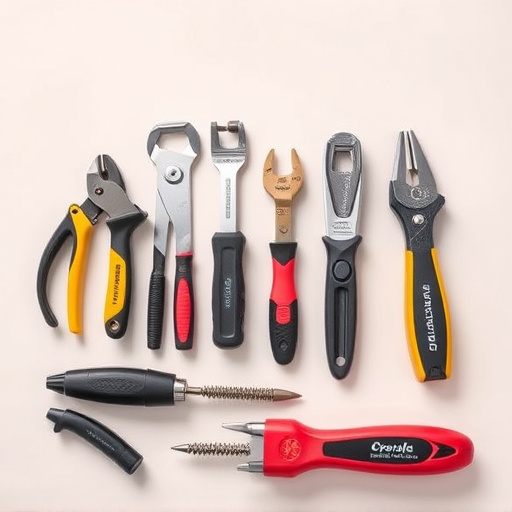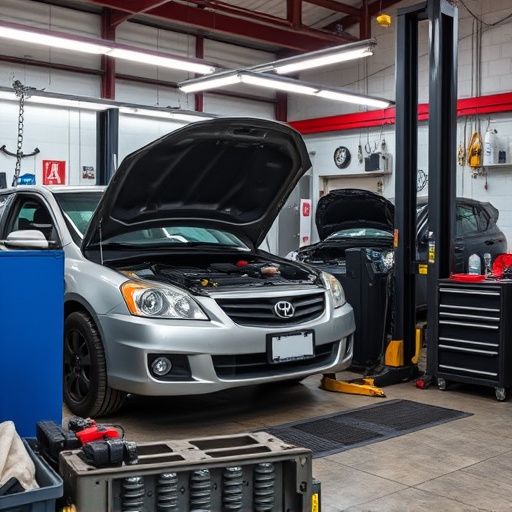Supplemental claims assistance (SCA) is vital for maintaining data integrity in automotive repair and restoration industries. SCA provides additional details about techniques, materials, and damage extent to support primary claims, ensuring accurate evaluations and billing, especially in paintless dent repair. Implementing SCA improves documentation, reduces errors, increases client trust, and aids better decision-making. Advanced tools streamline repair documentation and tracking, saving time for professionals to focus on detailed tasks, leading to efficient resource allocation, cost savings, and accurate vehicle repair history records. Proper management of SCA enhances customer satisfaction through faster claim settlements, reducing administrative tasks and operational transparency for improved internal coordination and service delivery, particularly in auto painting.
In today’s data-driven landscape, understanding the intricacies of supplemental reporting is paramount. This article explores the multifaceted benefits of proper supplemental reporting practices, particularly through the lens of supplemental claims assistance. We delve into how this process fortifies data integrity, streamlines operations, and ultimately boosts business efficiency and customer satisfaction. By the end, readers will grasp why effective supplemental claims assistance is a game-changer in any industry.
- The Role of Supplemental Reporting in Data Integrity
- Enhancing Efficiency and Accuracy with Claims Assistance
- Benefits for Businesses: Improving Operations and Customer Satisfaction
The Role of Supplemental Reporting in Data Integrity

Supplemental reporting plays a pivotal role in maintaining data integrity within various industries, including automotive repair and vehicle restoration. It involves providing additional information or documentation to support primary claims, ensuring accuracy and transparency throughout the process. For instance, in paintless dent repair services, supplemental reports can detail specific techniques used, material specifications, and the extent of damage prior to restoration, allowing for a more precise evaluation and billing.
This practice is especially beneficial when dealing with complex cases or specialized services like paintless dent repair, where visual evidence and detailed records are crucial. By incorporating supplemental claims assistance, businesses can enhance their documentation, mitigate errors, and foster trust among clients. This meticulous approach not only improves overall data accuracy but also enables better decision-making for both service providers and customers in the automotive repair and restoration sectors.
Enhancing Efficiency and Accuracy with Claims Assistance

Proper supplemental reporting, facilitated by advanced tools like supplemental claims assistance, significantly enhances efficiency and accuracy within auto body work and maintenance sectors. By streamlining the process of documenting and tracking repairs, this technology reduces the time typically spent on manual data entry, allowing professionals to focus more on intricate tasks such as dent removal and meticulous auto body work.
This improved efficiency translates into better resource allocation and cost savings for businesses. Moreover, the enhanced accuracy ensures that every detail related to a vehicle’s repair history is accurately documented, benefiting future maintenance or insurance claims. This is particularly crucial in mitigating errors and discrepancies associated with traditional paper-based systems, thereby fostering trust among clients who rely on timely and precise auto maintenance services.
Benefits for Businesses: Improving Operations and Customer Satisfaction

Proper supplemental reporting offers businesses a powerful tool to elevate their operations and customer satisfaction. By efficiently managing and tracking additional claims assistance, companies can streamline processes that were once cumbersome and time-consuming. This not only reduces administrative burdens but also leads to faster claim settlements, fostering a more positive experience for customers who rely on these services, such as car repair or auto body work.
Additionally, streamlined supplemental claims procedures enhance operational transparency. Clear communication and detailed reporting ensure stakeholders have access to accurate, real-time information about each claim’s status. This benefits businesses by improving internal coordination between departments, reducing errors, and ultimately contributing to a more efficient and effective delivery of essential services like auto painting.
Proper supplemental reporting, facilitated by advanced tools like supplemental claims assistance, plays a pivotal role in maintaining data integrity while enhancing operational efficiency and accuracy. By streamlining processes and improving customer satisfaction, businesses can unlock significant competitive advantages. Embracing these practices ensures not just adherence to standards, but also fosters a culture of excellence and trustworthiness.














